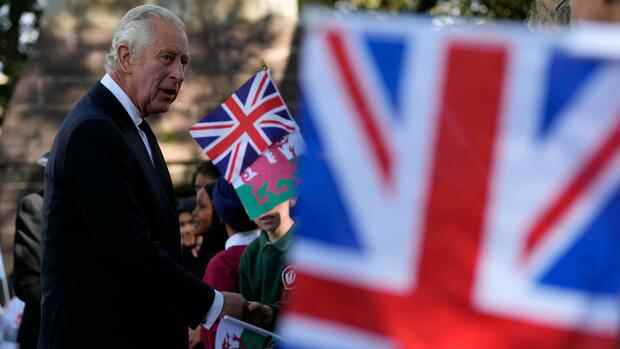The British monarchy is very lucrative for the royal family. Her fortune is estimated at £18.2 billion.
(Photo: Getty Images)
London As London watches the funeral of the late Queen Elizabeth II, the British people must also adjust economically to a new reign. With the accession of King Charles III. also put his finances in the spotlight. Because Charles was already a successful businessman during his “apprenticeship years” as heir to the throne and made a well-oiled money machine out of his Duchy of Cornwall.
“It’s a whole business concept,” says David Haigh, managing director of consultancy Brand Finance, describing the royal family business, popularly referred to as the “company” or “Monarchy PLC”. The king’s duchy benefits from estates, a cricket pitch, holiday homes, rented offices in London and a huge supermarket depot.
The estates alone, which consist primarily of agricultural land, cover 52,000 hectares. The duchy’s total fortune is estimated at more than £1 billion (€1.15 billion) and most recently brought the royal owner an annual income of £21 million. Prince William will take over the fortunes as the new heir to the throne.
The financial information service Bloomberg estimates the total fortune of the royal family, which includes the crown jewels, at 18.2 billion pounds. However, the Windsors only hold the vast majority of it in trust for the British people. Around 25 per cent of current profits go into the Windsors’ treasury – most recently that was around £86m.
Top jobs of the day
Find the best jobs now and
be notified by email.
The late Queen’s private assets include real estate and estates such as her Scottish country estate of Balmoral, a huge stamp collection and several riding stables. Bloomberg estimates the value at around £400 million. According to a 1993 agreement with the government, the new king does not have to pay inheritance tax on the queen’s estate.
In view of the royal wealth, the British public did not like the fact that up to 100 employees in Charles’ previous residence Clarence House in London could lose their jobs because the new king will reside in Buckingham Palace in the future. “Clarence House’s decision to announce redundancies at a time of mourning is simply heartless,” said Mark Serwotka, general secretary of the PCS public sector union.
A test for the purveyors to the court
The arrival of the new king also has an impact on many other companies: Around 600 companies that were previously able to sell their products with the blessing of the Queen and the promotionally effective title of purveyor to the court now have to apply for the royal coat of arms. According to the “Royal Warrant Holders Association”, the companies should now once again prove that they meet the strict standards for a royal court supplier.
Around 600 companies that have previously been able to sell their products with the blessing of the Queen and the promotionally effective title of purveyor to the court have to apply for the royal coat of arms.
(Photo: dpa)
So far, these include the tea brand Twinings, the chocolate manufacturer Cadbury’s and the sauce producer Heinz. Suppliers of “green” products in particular can now hope for royal marketing, since environmental protection has been a matter close to the heart of the new king for decades.
Also symbolically, Charles’ reign will bring some visible changes to the British economy. In the future, coins and pound notes will bear the likeness of Charles III. wear. Unlike his mother, the new king is likely to look to the left – following a 300-year-old tradition that monarchs keep turning their heads to.
More: “We Go Forward”: The Crumbling Commonwealth of the British Monarchy
